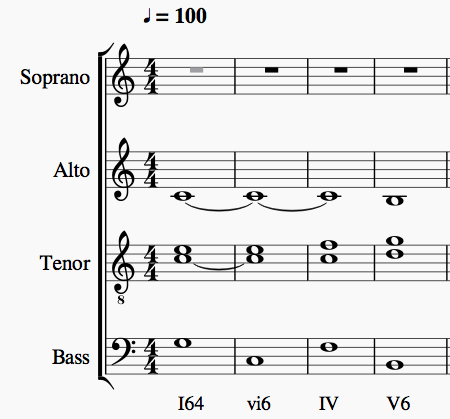I understand that the sense of resolution is strongest with the root movement of a rising fourth/descending fifth. However, is the important thing that the chords be a fourth/fifth apart (i.e. Cmaj - Fmaj/Gmaj - C maj) or is it important only that the bass tone be a fourth/fifth apart (i.e. C (pitch) - F (pitch)/G(pitch) - C (pitch)) regardless of what chord actually accompanies these tones?
Here is an example:
Notice that the chords do not follow a progression that moves in upward fourths/upward fifths, but the bass note follows that movement. Is this a useful way to move the bass, or does the theory that I have described not really apply here?

